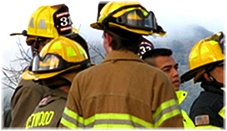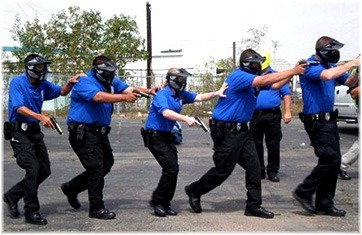.png)
 The passion of a first responder, whether it’s in Fire, EMS, EMA or Law Enforcement runs deep and across generations. Explorer programs, which provide young people with the chance to gain experience and insight in a career in the emergency services, offer a glimpse into the future of first responders nationwide. In most states, Firefighters and EMTs must be a minimum of 18 to get certified, and for Law Enforcement the minimum age is typically 21. Interested students as young as 12 (Civil Air Patrol) and as old as 20 can find an explorer post available in their area to get a head-start on what to expect if they choose to embark on a career as a first responder. Explorers have the chance to learn from experienced personnel, practice skills they will be using in the field, and, in some programs, compete in nationwide challenges and gain real-life experience on ride-alongs.
The passion of a first responder, whether it’s in Fire, EMS, EMA or Law Enforcement runs deep and across generations. Explorer programs, which provide young people with the chance to gain experience and insight in a career in the emergency services, offer a glimpse into the future of first responders nationwide. In most states, Firefighters and EMTs must be a minimum of 18 to get certified, and for Law Enforcement the minimum age is typically 21. Interested students as young as 12 (Civil Air Patrol) and as old as 20 can find an explorer post available in their area to get a head-start on what to expect if they choose to embark on a career as a first responder. Explorers have the chance to learn from experienced personnel, practice skills they will be using in the field, and, in some programs, compete in nationwide challenges and gain real-life experience on ride-alongs.
Being an explorer requires dedication and a willingness to learn and serve in their fields, across all public safety services. One particular student, a motivated admin from a Facebook Page for explorers, is both a Red Cross and Lifeguard Explorer. "In the Red Cross you learn how to put up shelters and work with persons whose residence is destroyed, and with life guarding you learn water rescue and emergency life support techniques.”
Many explorer programs have a selection process that includes an application, a student interview, and require a commitment to attend meetings and trainings. The Kalamazoo, Michigan website explorer page lays out the goals for its post, "The mission of the Explorer Program is to build self-confidence in our Explorers, while laying a foundation of ethics, respect, honesty, integrity, and self-confidence.” Similar dedication is required in many of the chapters nationwide. Many programs have internal training programs, where students progress through a series of classes and hands-on training to gain skills. In some places there are Explorer Academies during the summer where students attend more formalized intensive training.

The benefits to students who choose an explorer post include both training and the opportunity to see first-hand the realities of choosing a public safety career. One explorer highlighted this by stressing that, "Without explorers, new emergency service members would not have any experience and wouldn't know what to expect when they go jumping in to this field.” Another benefit is that explorers can get a “foot in the door” and network within their communities to find jobs after they have reached the minimum age and have finished the required training for their desired field. Many explorer posts have goals to find their future workforce from among the ranks of their members.
At the Ready is proud to spotlight these incredible teens that have chosen a career in public safety. For those who do not live near an explorer post, but are interested in public safety, check out the free training resources within our magazine pages, and reach out to others who share the same passion. As “EE” from the Emergency Explorers Page reminds us, "We are the future of emergency services. Recently I launched a Facebook page called Emergency Explorers it has stories and info plus jokes all ranged for the youth crowd but there is a lot of information for those who just want to get involved in emergency services or who already are.”
Follow Emergency Explorers on Facebook; “Social media is a very useful resource that almost everyone has some connection to, it is a great way to keep people informed about something and a great way to stay connected to trending topics.”
Check out your local Explorer program to connect on Facebook as well!








